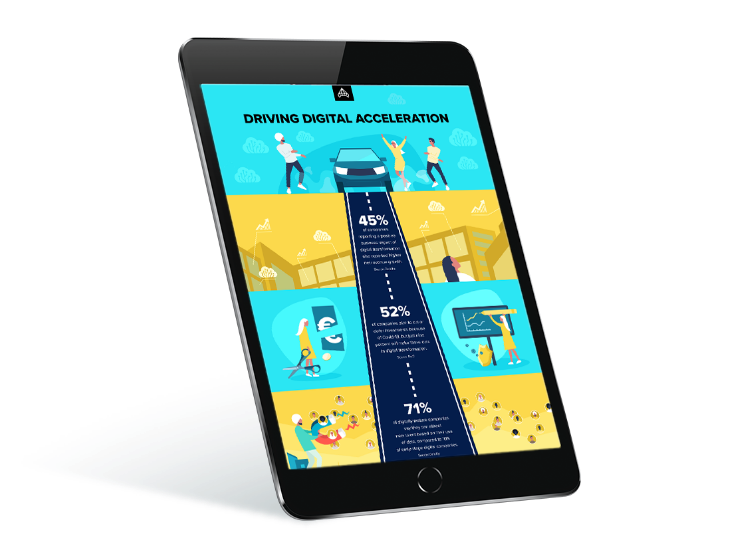How sports technology is changing the game

Today, technology has literally permeated every industry, and the world of sports is no exception. Digital transformation, Data Analytics, the Internet of Things, Artificial Intelligence, and other technologies are slowly but surely making sports accessible, safe, and more enjoyable than ever before.
In this piece, we’ve listed a few key advancements in sports technology that have changed the industry for the better.
1. Smart Stadiums
In 1998, 54% of sports fans said they would rather witness a game at the stadium than watch it from their living room. However, in 2011, that number dropped to 29%. And today, the Covid-19 pandemic has increased this shift even further.
Stadiums need to create an experience that is more rewarding than what fans receive from the comfort of their couches. And that’s where smart stadiums come in.

What makes a stadium ‘smart’?
Enhancing the in-stadium experience of the audience depends on a few different factors. Some of them include:
- Improving fan experience by introducing apps for in-stadium navigation, contactless menus to order food from their seat, and queue monitoring.
- Data-driven infrastructure management for monitoring the crowd and allocating resources such as parking spots.
- Ensuring the safety and security of attendees by incorporating AI-powered surveillance to detect overcrowding, littering, theft, and abnormal events such as fights.

Don’t get left behind in the shift to digital business
2. Injury Prevention and Rehabilitation
Sports injuries can have devastating effects on a player’s body and their career. And that’s why prevention and rehabilitation are crucial. Some sports technologies that are currently available to ensure the safety of players include:
- FITGuard — a high-tech mouthguard that uses a sensor to alert a player when they have suffered a severe but invisible injury during the game. The LED light on the guard turns red in the case of a serious impact such as a concussion, while a blue light indicates a medium-degree impact.
- Xenith’s helmets are designed to provide players with the highest degree of protection during a game. Unlike other helmets that use foam, their Shadow XR helmet uses shock absorbers (similar to car airbags) that release air to reduce impact.
- Sensoria’s ‘Smart Socks’ isn’t your average pair of socks. It is equipped with pressure sensors to evaluate the possibility and extent of running injuries. If and when an injury does occur, this data allows medical experts to recommend a proper rehabilitation plan so athletes can restore full range of function and movement in no time.


3. Tracking player performance
Sports technology has made it possible for runners, swimmers, cyclists, and all kinds of athletes to track their performance, gain valuable insights, and improve their skills. For instance, Electronic Performance and Tracking System (EPTS) devices can track a variety of metrics such as a player’s movement, their running speed, distance covered, heart rate, body’s work rate, and more.
Similarly, Real Madrid partnered with Microsoft to create a software solution that analyses the data collected during a match or a training session to help them make better strategic decisions. In fact, even a slow sport like golf has benefited from technology, with launch monitors helping people to play more accurately.
Learn more about our model – the smarter way to go offshore
LEARN MORE4. In-game technology
Avid fans of football may be familiar with ‘the hand of God’. For the uninitiated, this was a goal scored by Argentine footballer Diego Maradona using his hand during a match against England in the 1986 FIFA World Cup. But if they had high-definition cameras back in the day, then that goal would definitely have not been counted, and he probably would have received a yellow card for it.
In-game sports technology has come miles since then, and nearly every sport today has some form of decision-aid technology which aims to make the game fairer. Some forms of sports technology that are widely implemented today include:
- Instant replay that allows sports officials and viewers to see precisely what happened, providing a much-needed second perspective in sports like football, soccer, and even combat sports.
- Sensor tools such as Goal Line Technology and Hawk-eye that are used in cases where the naked eye may not be able to accurately determine the position of the ball, as in the case of football and cricket, respectively.
- RFID chips that use antennas to relay wireless signals and track the exact locations of athletes during a race.

5. Esports
While competitive gaming has been popular for decades now, the Esports industry has experienced a recent surge in popularity over the last two years, owing to the Covid-19 pandemic. With the creation of powerful game consoles, 5G networks, and gaming accessories, online gaming has evolved into a billion-dollar industry.

How we helped a fintech establish a dedicated development centre in Bangalore
DOWNLOAD CASE STUDYToday, Esports has grown from the simple virtualisation of sports to professional leagues and competitions with million-dollar prizes. In fact, large tech corporations like Facebook and Amazon are entering the Esports market to bring large-scale investment and innovation. Sports federations such as International Esports Federation (IESF) and World Esports Association (WESA), broadcasters, and game publishers are now hosting global tournaments to replace live sports and events via a host of social platforms, including YouTube and Twitch.
If you’re interested in building a dedicated development team in Bangalore, India, feel free to reach out to us by filling out the contact form. One of our senior executives will get back to you within 24 hours.















